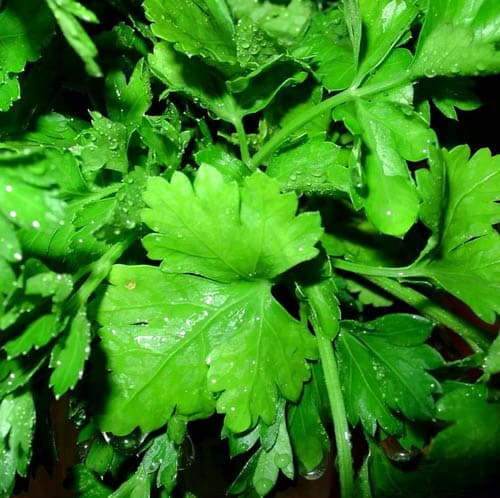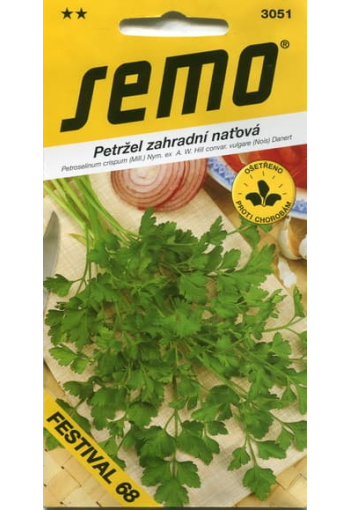Ex Tax: 0.72€
This is a variety which is intended for all year round harvesting of tops.
Leaves are smooth and have a medium green colour with a distinctive aroma in comparison to the leaves of root parsley.
Sowing can be carried out at any time during the year. In summer it is necessary to irrigate sufficiently to ensure emergence.
The growing time from spring and summer sowing is 75-90 days, from autumn sowing it is 140-180 days.
The recommended plant spacing is 20 x 3 cm.
The rosette of leaves is semi-raised. The leaf is large, dark green, triangular in shape. Greens grow well after cutting.
Very fragrant and high yielding variety. Perfect for both fresh use and canning. Resistant to downy mildew and septoria.
1,0 g = 450-650 seeds.


Eng.: Leaf Parsley. Suom.: Lehtipersilja. Sven.: Slätpersilja. Bot.: Petroselinum crispum (Mill.) Nym. Ex A.W. Hill convar. vulgare (Nois) Danert.
From history: parsley in Ancient Greece enjoyed the same honour as in religious India.
She was considered a sacred plant, symbolizing glory and joy. Indeed, in solemn moments, she served as an ornament to Hercules.
As a spice, this culture began to be used in the Middle Ages thanks to Charlemagne, who ordered it to be grown in his gardens.
Soon, parsley became an indispensable addition to all vegetable dishes.
The value of parsley is associated with a high content of carotene and vitamin C, the presence of other vitamins (B1, B2, B6, PP),
as well as potassium, sodium, magnesium, calcium, phosphorus and iron.
By the amount of potassium, it ranks first among vegetables, and by the presence of vitamins, it is not inferior to oranges.
Parsley is highly valued in medicine for its healing properties. Medicinal raw materials are seeds, roots, leaves and stems.
The plant has a diuretic, choleretic, antispasmodic, detoxifying and antiseptic effect.
Parsley is used as a diuretic for kidney and cardiovascular diseases, accompanied by oedema.
Infusion and decoction of seeds and leaves are used for kidney stones and inflammation of the mucous membrane of the urinary tract.
The use of a decoction is effective for decompensated heart defects.
Outwardly, parsley decoction is indicated for abscesses, bruises, bites, mosquitoes, bees and wasps.











